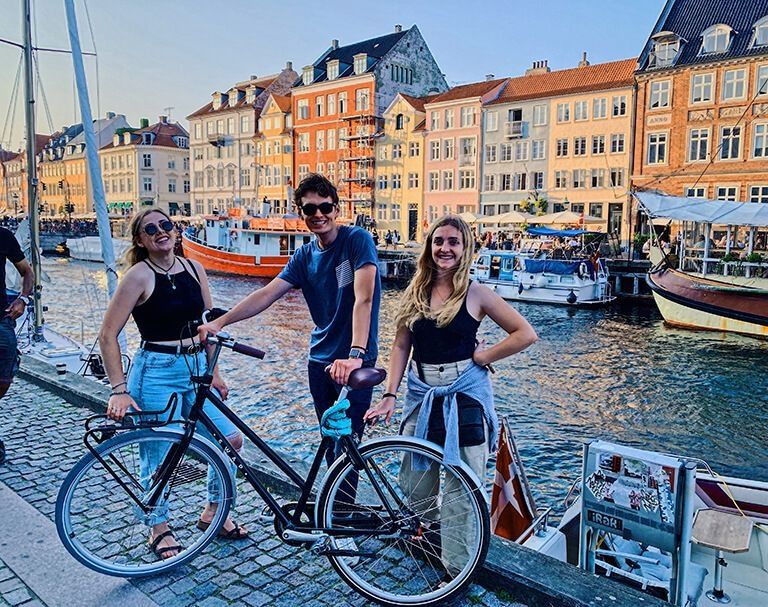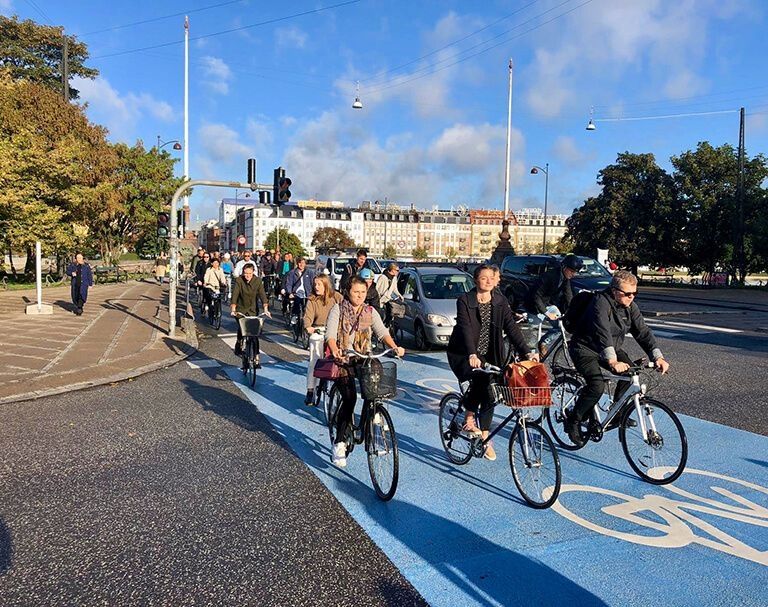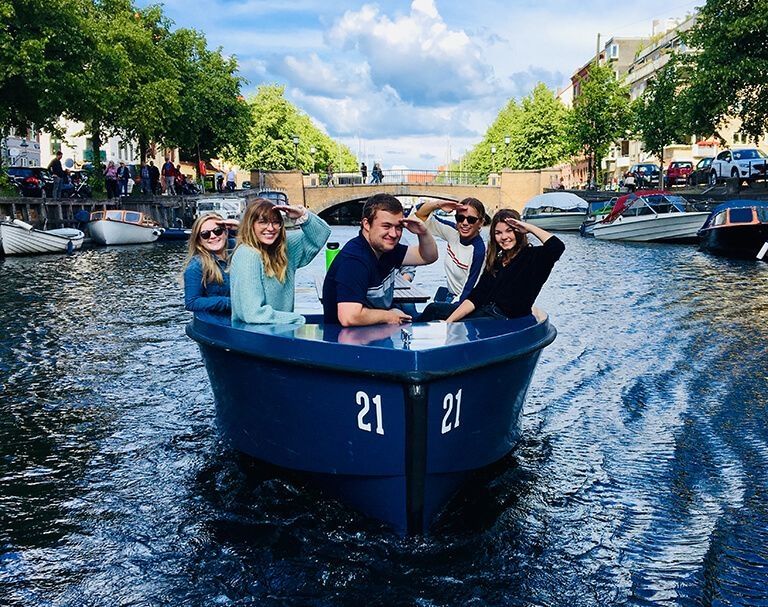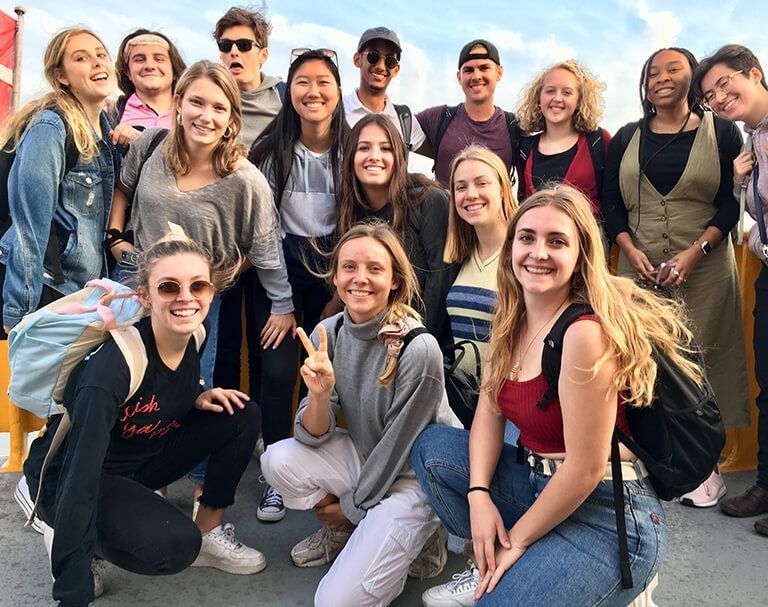Why is Denmark the happiest country in the world?
Come to the CIEE Global Institute - Copenhagen and see for yourself!
Ever wonder why some countries are rated happier places to live than others? Then you’re invited to the CIEE Global Institute - Copenhagen for a deep dive into, “The Study of Scandinavian Happiness.” This six-week, three-credit sociology course is offered on the Open Campus Block program in collaboration with the Happiness Research Institute in Copenhagen. It looks at the unique circumstances of the Scandinavian nations, their levels of happiness, and the determining cultural, social, economic, and political factors that drive a population’s well-being.
In one of CIEE Copenhagen’s most popular courses, “The Study of Scandinavian Happiness,” explores Scandinavian welfare systems, which all provide a comparatively high degree of social security, cradle-to-grave educational philosophy, and healthy populations. Looking at other “happy” nations, you’ll come to understand how they attain high marks on well-being, and what makes some countries score lower on those parameters. And you will learn from a true expert: Happiness Research Institute CEO and New York Times best-selling author of "The Little Book of Lykke,” Meik Wiking, who coordinates the course. Have a look at him discussing this emerging research area in this podcast.
Best of all, you’ll experience Danish life and its people firsthand! Living in the same country you are studying is a big advantage. The course will take you into the community to see the practices residents employ to stay happy. And, in your free time you can take advantage of the wide variety of cultural experiences Copenhagen offers. You’ll never run out of things to do - whether you stay here for one, two, or three blocks. You can also visit other Scandinavian countries as well as the rest of Europe on weekend trips.
Come to Denmark, take part in “The Study of Scandinavian Happiness,” and bring home new perspectives on how societies can promote the well-being of its citizens.
Related Posts
Horseback Riding in Madrid
By: Shafa Abbas Madrid offers an abundance of amazing experiences—iconic activities like visiting the Museo del Prado or strolling through El Retiro Park. But for me, the most unforgettable thing... keep reading
Hygge: One of the best parts of Danish culture
Written by: Grace Beaster a student from: Open Campus Sring Block 1 2025 One of the best parts of Danish culture that I’ve discovered while here is a concept called... keep reading
The Schengen Area? What’s that?
By: Evelyn Bartlett The Schengen Area? What’s that? I’d never heard of it - at least until I’d applied to study abroad and suddenly had to learn about travel restrictions... keep reading






